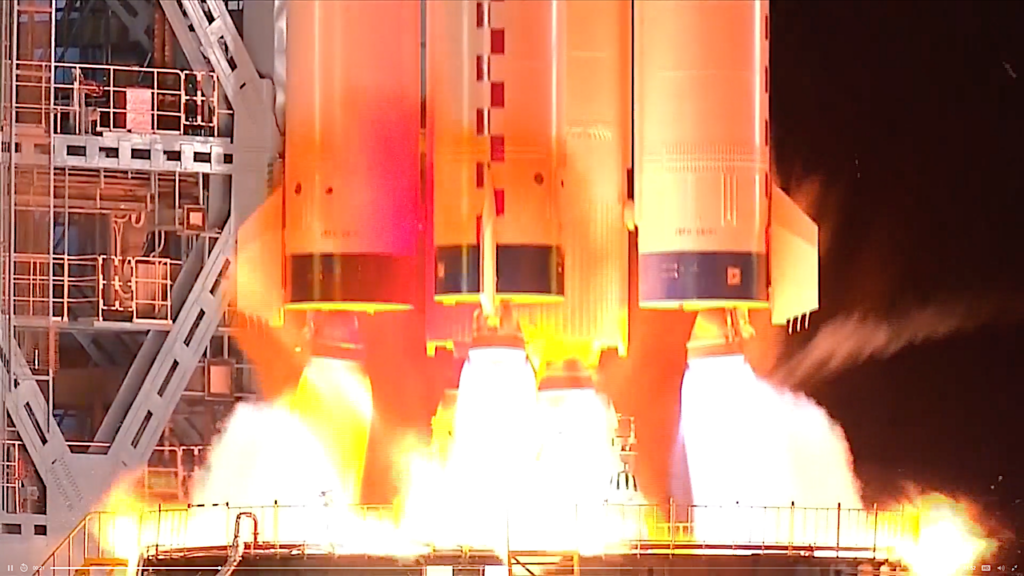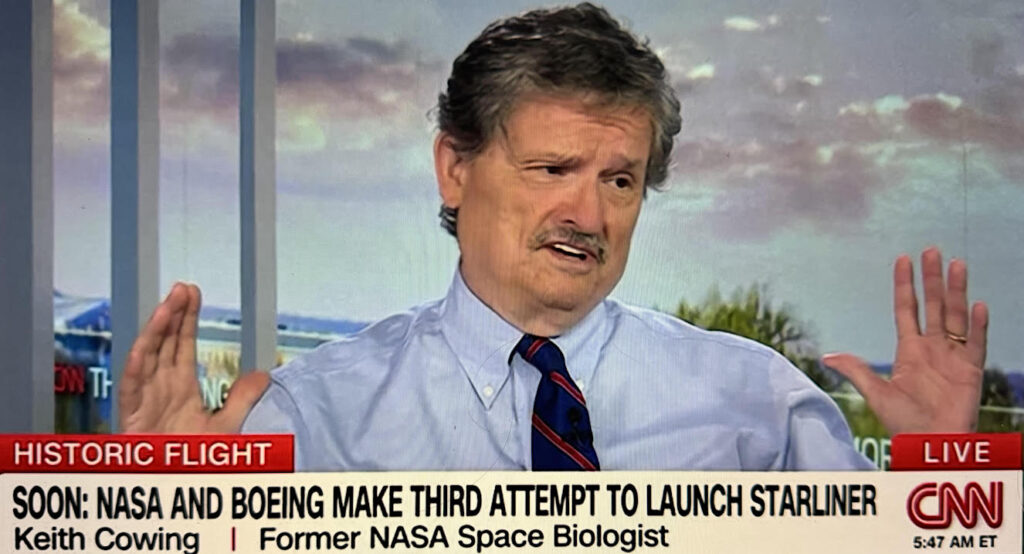Chang'e-5 Is On Its Way To The Moon

 Keith’s note: China has launched its Change’e-5 mission to return samples from the Moon. The launch aboard a Long March 5 rocket went off as planned and the spacecraft is now on its way out of Earth orbit and heading toward the Moon. Change’e-5 will land on 27 November, drill 2 meters into the lunar surface, and collect 2 kg of samples for return to Earth. The landing site is a volcanic feature in the Ocean of Storms. As such these samples could teach us how long the Moon was active after its formation, what its magnetic field was like, and what the interior may be like today. The samples are due to be returned to Earth on 16-17 December. Many nations are participating in the scientific analysis of the samples including U.S. researchers.
Keith’s note: China has launched its Change’e-5 mission to return samples from the Moon. The launch aboard a Long March 5 rocket went off as planned and the spacecraft is now on its way out of Earth orbit and heading toward the Moon. Change’e-5 will land on 27 November, drill 2 meters into the lunar surface, and collect 2 kg of samples for return to Earth. The landing site is a volcanic feature in the Ocean of Storms. As such these samples could teach us how long the Moon was active after its formation, what its magnetic field was like, and what the interior may be like today. The samples are due to be returned to Earth on 16-17 December. Many nations are participating in the scientific analysis of the samples including U.S. researchers.
I am scheduled to be on Deutsche Welle TV at 4:00 and 6:00 pm and on CGTN at 8:30 Pm today to talk about this mission.









Good summary particularly 1960s song “everyone’s gone to the moon” which then was only US and USSR. Nowadays it is many countries and companies. The Antarctica analogy when it was 50 years after men first walked that continent and then many nations set up shop. Let’s see what will happen this decade with what is planned and what will actually happen.
It is always a pleasure to find out that the space industry and discoveries do not depend on NASA only. In the past, NASA was the most powerful space company with a huge budget, but today things change. Nowadays there are different devices which can be used to keep tracking the changes both on the Earth and space to be ready for every unexpected issue in the future https://www.skyrora.com/pos…
I too think it’s great that other countries are increasing their activities in space. But I’m not sure exactly what your pleasure is derived from, since space exploration has never depended on NASA. The earliest explorations were as likely to have been conducted by Soviet spacecraft as U.S. In later decades ESA, Japan, India, China, and Israel have sent probes to objects in the solar system.
If NASA at times had a higher budget and output, wasn’t that a good thing since it led to many discoveries? Did it create some type of hindrance to other countries being able to explore space? I don’t think very many space enthusiasts or scientists in the U.S. find pleasure when other countries have budget cutbacks, as this means the overall pace of discovery will be slowed.